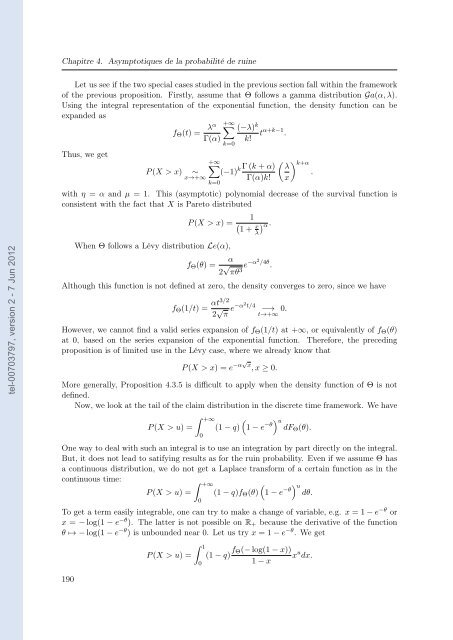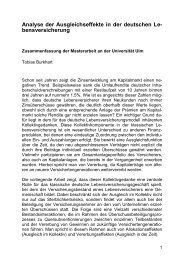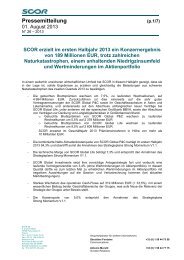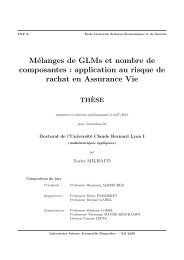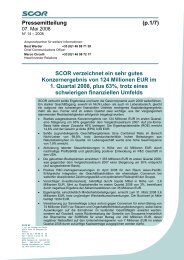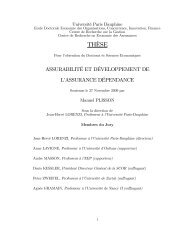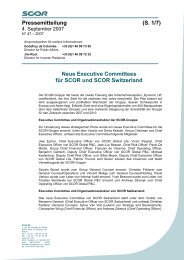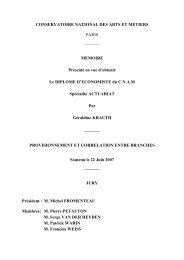- Page 1 and 2:
tel-00703797, version 2 - 7 Jun 201
- Page 3 and 4:
tel-00703797, version 2 - 7 Jun 201
- Page 5 and 6:
tel-00703797, version 2 - 7 Jun 201
- Page 7 and 8:
tel-00703797, version 2 - 7 Jun 201
- Page 9 and 10:
tel-00703797, version 2 - 7 Jun 201
- Page 11 and 12:
tel-00703797, version 2 - 7 Jun 201
- Page 13 and 14:
tel-00703797, version 2 - 7 Jun 201
- Page 15 and 16:
tel-00703797, version 2 - 7 Jun 201
- Page 17 and 18:
tel-00703797, version 2 - 7 Jun 201
- Page 19 and 20:
tel-00703797, version 2 - 7 Jun 201
- Page 21 and 22:
tel-00703797, version 2 - 7 Jun 201
- Page 23 and 24:
tel-00703797, version 2 - 7 Jun 201
- Page 25 and 26:
tel-00703797, version 2 - 7 Jun 201
- Page 27 and 28:
tel-00703797, version 2 - 7 Jun 201
- Page 29 and 30:
tel-00703797, version 2 - 7 Jun 201
- Page 31 and 32:
tel-00703797, version 2 - 7 Jun 201
- Page 33 and 34:
tel-00703797, version 2 - 7 Jun 201
- Page 35 and 36:
tel-00703797, version 2 - 7 Jun 201
- Page 37 and 38:
tel-00703797, version 2 - 7 Jun 201
- Page 39 and 40:
tel-00703797, version 2 - 7 Jun 201
- Page 41 and 42:
tel-00703797, version 2 - 7 Jun 201
- Page 43 and 44:
tel-00703797, version 2 - 7 Jun 201
- Page 45 and 46:
tel-00703797, version 2 - 7 Jun 201
- Page 47 and 48:
tel-00703797, version 2 - 7 Jun 201
- Page 49 and 50:
tel-00703797, version 2 - 7 Jun 201
- Page 51 and 52:
tel-00703797, version 2 - 7 Jun 201
- Page 53 and 54:
tel-00703797, version 2 - 7 Jun 201
- Page 55 and 56:
tel-00703797, version 2 - 7 Jun 201
- Page 57 and 58:
tel-00703797, version 2 - 7 Jun 201
- Page 59 and 60:
tel-00703797, version 2 - 7 Jun 201
- Page 61 and 62:
tel-00703797, version 2 - 7 Jun 201
- Page 63 and 64:
tel-00703797, version 2 - 7 Jun 201
- Page 65 and 66:
tel-00703797, version 2 - 7 Jun 201
- Page 67 and 68:
tel-00703797, version 2 - 7 Jun 201
- Page 69 and 70:
tel-00703797, version 2 - 7 Jun 201
- Page 71 and 72:
tel-00703797, version 2 - 7 Jun 201
- Page 73 and 74:
tel-00703797, version 2 - 7 Jun 201
- Page 75 and 76:
tel-00703797, version 2 - 7 Jun 201
- Page 77 and 78:
tel-00703797, version 2 - 7 Jun 201
- Page 79 and 80:
tel-00703797, version 2 - 7 Jun 201
- Page 81 and 82:
tel-00703797, version 2 - 7 Jun 201
- Page 83 and 84:
tel-00703797, version 2 - 7 Jun 201
- Page 85 and 86:
tel-00703797, version 2 - 7 Jun 201
- Page 87 and 88:
tel-00703797, version 2 - 7 Jun 201
- Page 89 and 90:
tel-00703797, version 2 - 7 Jun 201
- Page 91 and 92:
tel-00703797, version 2 - 7 Jun 201
- Page 93 and 94:
tel-00703797, version 2 - 7 Jun 201
- Page 95 and 96:
tel-00703797, version 2 - 7 Jun 201
- Page 97 and 98:
tel-00703797, version 2 - 7 Jun 201
- Page 99 and 100:
tel-00703797, version 2 - 7 Jun 201
- Page 101 and 102:
tel-00703797, version 2 - 7 Jun 201
- Page 103 and 104:
tel-00703797, version 2 - 7 Jun 201
- Page 105 and 106:
tel-00703797, version 2 - 7 Jun 201
- Page 107 and 108:
tel-00703797, version 2 - 7 Jun 201
- Page 109 and 110:
tel-00703797, version 2 - 7 Jun 201
- Page 111 and 112:
tel-00703797, version 2 - 7 Jun 201
- Page 113 and 114:
tel-00703797, version 2 - 7 Jun 201
- Page 115 and 116:
tel-00703797, version 2 - 7 Jun 201
- Page 117 and 118:
tel-00703797, version 2 - 7 Jun 201
- Page 119 and 120:
tel-00703797, version 2 - 7 Jun 201
- Page 121 and 122:
tel-00703797, version 2 - 7 Jun 201
- Page 123 and 124:
tel-00703797, version 2 - 7 Jun 201
- Page 125 and 126:
tel-00703797, version 2 - 7 Jun 201
- Page 127 and 128:
tel-00703797, version 2 - 7 Jun 201
- Page 129 and 130:
tel-00703797, version 2 - 7 Jun 201
- Page 131 and 132:
tel-00703797, version 2 - 7 Jun 201
- Page 133 and 134:
tel-00703797, version 2 - 7 Jun 201
- Page 135 and 136:
tel-00703797, version 2 - 7 Jun 201
- Page 137 and 138:
tel-00703797, version 2 - 7 Jun 201
- Page 139 and 140:
tel-00703797, version 2 - 7 Jun 201
- Page 141 and 142:
tel-00703797, version 2 - 7 Jun 201
- Page 143 and 144:
tel-00703797, version 2 - 7 Jun 201
- Page 145 and 146:
tel-00703797, version 2 - 7 Jun 201
- Page 147 and 148:
tel-00703797, version 2 - 7 Jun 201
- Page 149 and 150:
tel-00703797, version 2 - 7 Jun 201
- Page 151 and 152:
tel-00703797, version 2 - 7 Jun 201
- Page 153 and 154: tel-00703797, version 2 - 7 Jun 201
- Page 155 and 156: tel-00703797, version 2 - 7 Jun 201
- Page 157 and 158: tel-00703797, version 2 - 7 Jun 201
- Page 159 and 160: tel-00703797, version 2 - 7 Jun 201
- Page 161 and 162: tel-00703797, version 2 - 7 Jun 201
- Page 163 and 164: tel-00703797, version 2 - 7 Jun 201
- Page 165 and 166: tel-00703797, version 2 - 7 Jun 201
- Page 167 and 168: tel-00703797, version 2 - 7 Jun 201
- Page 169 and 170: tel-00703797, version 2 - 7 Jun 201
- Page 171 and 172: tel-00703797, version 2 - 7 Jun 201
- Page 173 and 174: tel-00703797, version 2 - 7 Jun 201
- Page 175 and 176: tel-00703797, version 2 - 7 Jun 201
- Page 177 and 178: tel-00703797, version 2 - 7 Jun 201
- Page 179 and 180: tel-00703797, version 2 - 7 Jun 201
- Page 181 and 182: tel-00703797, version 2 - 7 Jun 201
- Page 183 and 184: tel-00703797, version 2 - 7 Jun 201
- Page 185 and 186: tel-00703797, version 2 - 7 Jun 201
- Page 187 and 188: tel-00703797, version 2 - 7 Jun 201
- Page 189 and 190: tel-00703797, version 2 - 7 Jun 201
- Page 191 and 192: tel-00703797, version 2 - 7 Jun 201
- Page 193 and 194: tel-00703797, version 2 - 7 Jun 201
- Page 195 and 196: tel-00703797, version 2 - 7 Jun 201
- Page 197 and 198: tel-00703797, version 2 - 7 Jun 201
- Page 199 and 200: tel-00703797, version 2 - 7 Jun 201
- Page 201 and 202: tel-00703797, version 2 - 7 Jun 201
- Page 203: tel-00703797, version 2 - 7 Jun 201
- Page 207 and 208: tel-00703797, version 2 - 7 Jun 201
- Page 209 and 210: tel-00703797, version 2 - 7 Jun 201
- Page 211 and 212: tel-00703797, version 2 - 7 Jun 201
- Page 213 and 214: tel-00703797, version 2 - 7 Jun 201
- Page 215 and 216: tel-00703797, version 2 - 7 Jun 201
- Page 217 and 218: tel-00703797, version 2 - 7 Jun 201
- Page 219 and 220: tel-00703797, version 2 - 7 Jun 201
- Page 221 and 222: tel-00703797, version 2 - 7 Jun 201
- Page 223 and 224: tel-00703797, version 2 - 7 Jun 201
- Page 225 and 226: tel-00703797, version 2 - 7 Jun 201
- Page 227 and 228: tel-00703797, version 2 - 7 Jun 201
- Page 229 and 230: tel-00703797, version 2 - 7 Jun 201
- Page 231 and 232: tel-00703797, version 2 - 7 Jun 201
- Page 233 and 234: tel-00703797, version 2 - 7 Jun 201
- Page 235 and 236: tel-00703797, version 2 - 7 Jun 201
- Page 237 and 238: tel-00703797, version 2 - 7 Jun 201
- Page 239 and 240: tel-00703797, version 2 - 7 Jun 201
- Page 241 and 242: tel-00703797, version 2 - 7 Jun 201
- Page 243 and 244: tel-00703797, version 2 - 7 Jun 201
- Page 245 and 246: tel-00703797, version 2 - 7 Jun 201
- Page 247 and 248: tel-00703797, version 2 - 7 Jun 201


